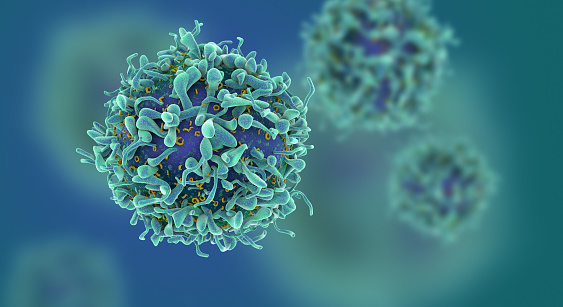
Assuming everything goes according to plan, the market for CAR-T cells in the U.S. could have two more players – one for lymphoma and one for multiple myeloma – by the end of 2020.
Summit, New Jersey-based Celgene said in its second quarter 2019 earnings Tuesday that it plans to file for Food and Drug Administration approval of the CAR-T lisocabtagene maraleucel, or liso-cel, in diffuse large B-cell lymphoma (DLBCL) during the fourth quarter of this year. The company also anticipates filing for approval of the CAR-T bb2121 – also known as idecabtagene vicleucel, or ide-cel – in multiple myeloma during the first half of next year.
In a note to investors, Cowen analyst Yaron Weber wrote that FDA approval of liso-cel is expected in the middle of 2020, following likely data from the registration-directed Phase I TRANSCEND NHL 001 study in December at the American Society of Hematology meeting. Meanwhile, he noted, Celgene’s guidance anticipates approval for ide-cel in the second half of 2020. However, he wrote that it is unclear if data from the Phase II KarMMa study of ide-cel will be at ASH, given that the study only completed enrollment in November of last year.
In January, Celgene and New York-based Bristol-Myers Squibb reached an agreement whereby the latter would acquire the former for $74 billion. Celgene itself acquired Seattle-based Juno Therapeutics, the company developing liso-cel, in January 2018 for $9 billion.
Updated data from the liso-cel trial were presented at the American Society of Clinical Oncology’s annual meeting last month, showing that among six DLBCL patients who had secondary central nervous system lymphoma, four achieved complete responses. Data from the 2017 ASH meeting among 68 DLBCL patients showed a 75 percent overall response rate, including a 56 percent complete response rate.
Notably, the high efficacy rates came without as much of the toxicity that has characterized CAR-T therapies. Cytokine release syndrome – or CRS, a constellation of immune system reactions common with CAR-Ts – occurred in only 30 percent of patients, with only one case of life-threatening CRS. Neurotoxicity occurred in 20 percent of patients, with 14 percent experiencing serious or life-threatening events.
By contrast, the clinical trial that led to the approval of another CAR-T therapy in DLBCL, Gilead Sciences’ Yescarta (axicabtagene ciloleucel), showed CRS in 94 percent of patients, with 13 percent experiencing events that were serious or worse. Neurotoxicity occurred in 87 percent of patients, with 31 percent experiencing events that were serious or worse. With Novartis’ Kymriah (tisagenlecleucel), CRS occurred in 74 percent of subjects, including 23 percent who experienced serious or worse events. Neurotoxicity occurred in 58 percent of patients, including 18 percent who experienced serious or worse events.
Photo: CGToolbox, Getty Images










